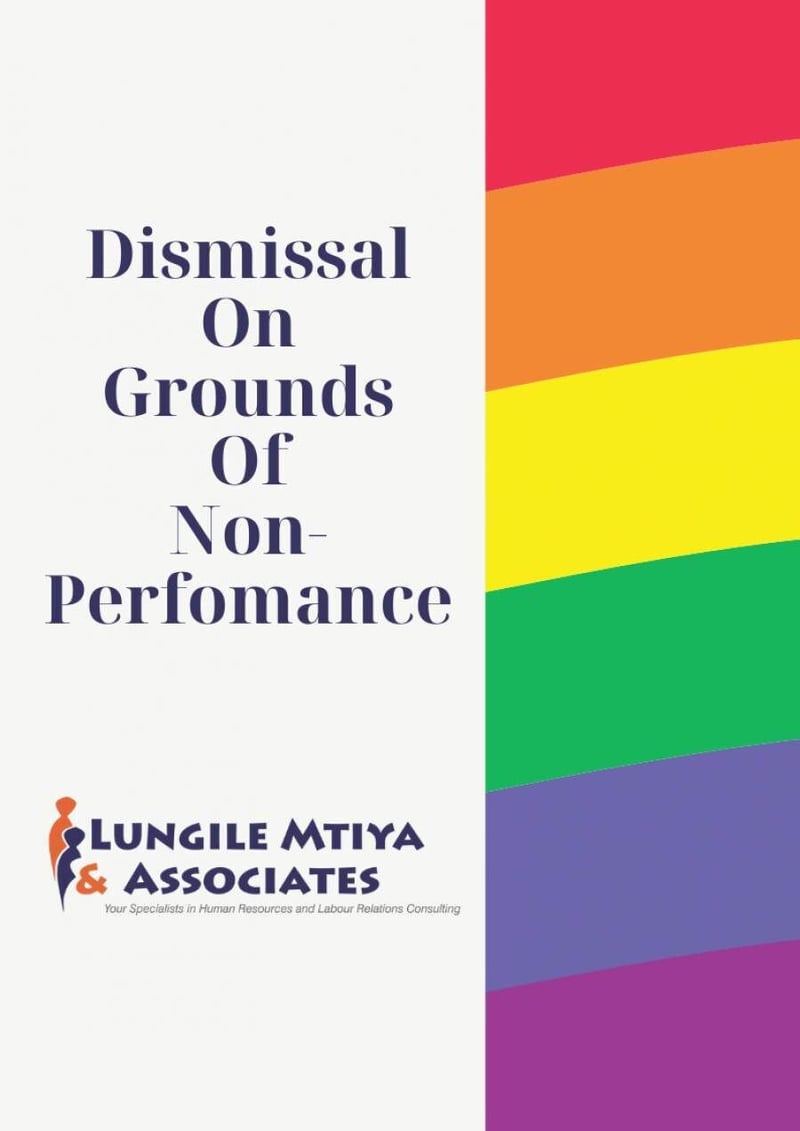Dismissal on grounds of non-performance
Written by: Archy Hlahla Save to Instapaper
Organisations, companies, and employers hire staff because of their unique value proposition. People are hired for their ability to think and solve complex business problems, but what happens when the employee fails to deliver what is expected of them or is unable to produce the desired results?
Every employer’s first responsibility is to bring new employees up to speed, familiarize them with the organizational and departmental strategies, company culture as well as ensure that their job descriptions are clear and that they understand what is required of them to be productive. Employers need to give employees an idea of the expected results, help them improve competency and performance must be monitored.
Poor performance is a form of incapacity; physical or mental inability to do something and it is often caused by a variety of contributing factors. They need to organize themselves and prioritize tasks. Listen attentively, ask questions, and aim for clarity when tasks are being given.
Introducing employee relations eliminates confusion in the workplace. Employee relations simply refers to the organization’s efforts to create and maintain positive relations with its employees. By maintaining positive, constructive employee relations, employers stand a better chance to keep employees loyal and more engaged in their work.
It is important to understand that it is both the employer and the employee’s responsibility to ensure that work is done correctly and accordingly to ensure that results are in line with what is expected for the overall success of the organization or company. Employee relations is managed through the policies and procedures which effectively guide and manage the employer employee relationship.
In the case that the employer has clearly outlined all expectations, but employees still fail to perform, they need to consider whether there was any material breach of the required work standard, whether the employee was aware of the required standard and if the standard was fair and attainable. The employer should also explore if there are any alternatives such as training which could possibly help the employee reach the required improvement, coaching and mentoring by a peer or member of the organization, external coaching and mentoring or even perhaps demotion to a lower position might result in manageable balance of responsibilities which might lead to an acceptable performance.
However, there are situations where all the interventions mentioned above do not yield any positive results. This is where the labour relations act can be engaged to guide the decisions and support a conducive work environment. The labour act recognizes three types of dismissals namely misconduct, operational requirements, and incapacity. Dismissal for poor performance should only be considered after all other options have been fully exhausted and full opportunity has been granted to the employee to meet the required standards.
Get new press articles by email
Latest from
- TymeBank empowers Spaza Shops
- AfriSam builds concrete possibilities for tiny tots at Sivukile ECD
- KEITH MICHAEL - Education in SA needs all the help it can get
- AfriSam creates a future of digital possibilities for youth of Delportshoop
- Afrisam cements partnership with Springboks
- Congratulations to the class of 2021
- SA needs to fly vaccines to remote rural areas
- Time for us to help the teenage rebellion
- Siyabuya releases a hit song to inspire Mzansi beat Covid
- Decreasing print data vulnerability in organisations
- Zurubaby bounces into Clicks stores nationwide, with a new look to boot
- AfriSam opens door of opportunities to women in construction
- AfriSam awards property developer a brand new bakkie
- Siyabuya supports Tshwane’s notorious cabbage bandit
- AfriSam Concrete Training makes big impact to SMMEs
The Pulse Latest Articles
- Education Is The Frontline Of Inequality, Business Must Show Up (December 11, 2025)
- When The Purple Profile Pictures Fade, The Real Work Begins (December 11, 2025)
- Dear Santa, Please Skip The Socks This Year (December 10, 2025)
- Brandtech+ Has 100 Global Creative Roles For South African Talent (December 9, 2025)
- The Woman Behind Bertie: Michelle’s Journey To Cape Town’s Beloved Mobile Café (December 9, 2025)
